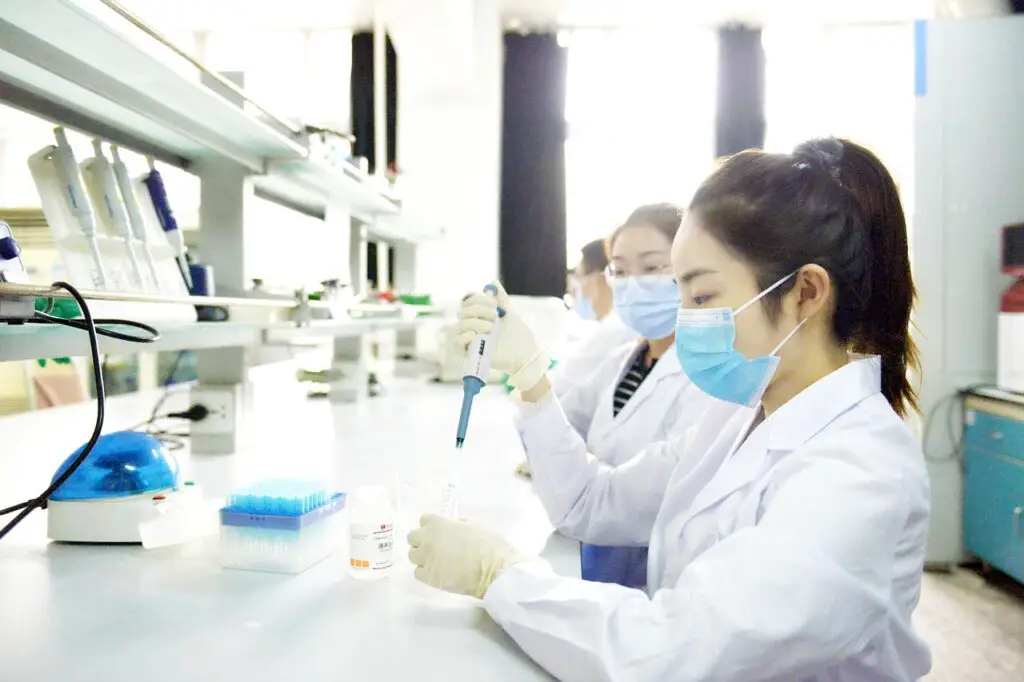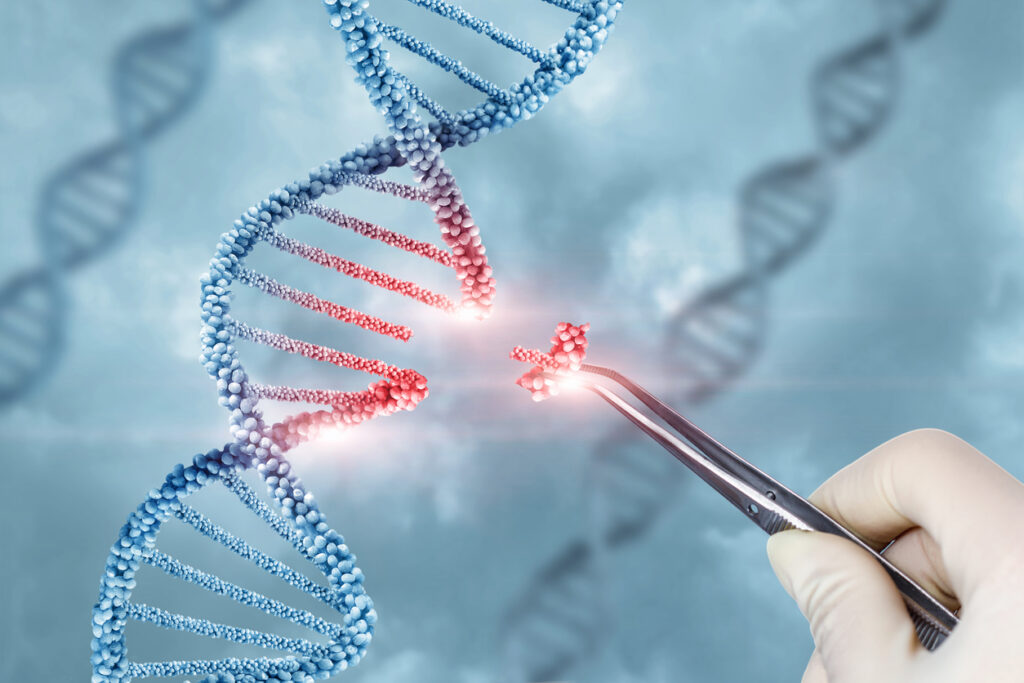1. The Future Just Got Longer—Much Longer

Picture this: Your great-great-grandkids celebrating your child’s 150th birthday, casually discussing what to wear to their weekend trip to Mars. Sounds like sci-fi, right? Well, buckle up—because some scientists believe the first humans to hit 150 years old are already walking among us. Longevity research is no longer just about adding years to life; it’s about adding quality life to years. And thanks to mind-blowing advancements in genetics, AI-driven medicine, and even anti-aging tech, your kids might live long enough to see flying cars (finally) become mainstream. This isn’t just a small leap for science—it’s a full-blown rewrite of what it means to be human.
Now, before you start picturing a world full of 150-year-olds struggling to remember where they put their glasses, let’s get one thing straight: this isn’t just about living longer—it’s about living better. Scientists aren’t interested in dragging out old age; they’re working on ways to keep people youthful, energetic, and disease-free for as long as possible. Imagine a 90-year-old with the strength, sharpness, and energy of a 40-year-old—that’s the goal. And surprisingly, we’re much closer than you’d think. The race to extend human life has become the modern-day moon landing. And the biggest twist? Your kids—or even you—could be among the first to experience it.
2. The Fountain of Youth… in a Lab?

Forget medieval myths about magic elixirs—science is getting dangerously close to cracking the code on aging. Researchers are experimenting with everything from cellular reprogramming to lab-grown organs, and the results are nothing short of astonishing. Take senolytics, for example: a class of drugs designed to eliminate “zombie cells” that clog up our systems and accelerate aging. Then there’s gene therapy, which could tweak our DNA to slow down biological decay. Scientists aren’t just extending life—they’re making sure we stay young for as long as possible. If successful, these breakthroughs could mean that wrinkles, joint pain, and even gray hair become optional rather than inevitable.
The deeper scientists dive into the mechanics of aging, the more they realize that it’s just another biological process—one that can be slowed, paused, or even reversed. A company called Altos Labs is literally working on cellular rejuvenation, hoping to reprogram human cells to behave like their younger selves. If they crack the code, we’re looking at a future where people regenerate tissue like starfish, replacing damaged organs without surgeries. The first clinical trials are already happening. And if history has taught us anything, it’s that the impossible has a funny way of becoming reality much faster than we expect.
3. Meet the Super Agers

You know those rare 100-year-olds who still jog, play chess like grandmasters, and have sharper memories than people half their age? Scientists call them “super agers,” and they might just hold the secret to extreme longevity. Unlike the rest of us, their bodies seem to resist aging at a molecular level. Their brains shrink more slowly, their muscles stay strong, and their immune systems don’t betray them as quickly. The wild part? Researchers believe these abilities aren’t just genetic luck—they can be replicated. If scientists can pinpoint the exact biological mechanisms that make them age so slowly, they could develop treatments to extend those benefits to everyone.
Studies show that lifestyle choices play a massive role in longevity, and super agers have a few things in common. They stay socially active, challenge their brains daily, and have stress levels that never seem to skyrocket. Their diets are packed with whole foods, and they don’t spend hours glued to screens. Even their sleep habits seem to be optimized, with consistent rest that keeps their bodies and minds refreshed. Turns out, the secret to living longer might not be as complicated as we think—though science is working on ways to make it even easier.
4. The AI Doctors That Might Save Your Life—Over and Over Again

Imagine a world where your doctor is an AI that knows your body better than you do. No waiting rooms, no rushed consultations—just precise, personalized healthcare tailored specifically to your genetic makeup. AI is already revolutionizing medicine, spotting diseases years before they develop and crafting treatments that perfectly match an individual’s biology. And as machine learning gets even smarter, it could mean the end of guesswork in medicine. With access to real-time health data, AI might soon be able to detect subtle changes in your body and intervene before an illness even starts.
Right now, AI is helping doctors detect cancer at unprecedented accuracy, predicting heart attacks before they happen, and even designing custom drugs for patients. In the near future, it could diagnose you in seconds and recommend treatments with near-perfect precision. Imagine wearable tech that constantly monitors your health and updates your AI doctor, ensuring you stay in peak condition at all times. With this kind of technology, surviving once-deadly illnesses might become the norm, pushing human lifespans further than ever before..
5. Reversing Aging: The Science Gets Weird

What if aging wasn’t an unstoppable force but just another problem science could solve? Researchers are already testing ways to reverse the aging process at a cellular level, and some of the results are mind-blowing. One experiment at Harvard successfully restored eyesight in old mice by reprogramming their cells to a younger state. Another study found that blood transfusions from young mice to older ones improved brain function and muscle strength. It sounds like something out of a vampire novel, but scientists are taking it seriously. And with ongoing human trials, it might not be long before we see real anti-aging treatments that can turn back the biological clock.
From peptides that stimulate tissue regeneration to CRISPR technology editing out aging-related damage in DNA, the science of aging is getting stranger and more promising. Even something as simple as fasting has been shown to activate genes that promote longevity and cellular repair. Some researchers believe that, with the right breakthroughs, we might not just slow aging but actually reverse it. Imagine a world where turning 70 doesn’t mean slowing down—it means signing up for another round of youth. The idea of getting older without actually “aging” could become our new reality.
6. The Food That Could Keep You Young Forever

What if the key to longevity was hiding in your fridge? Scientists have been studying the diets of the longest-living people on Earth, and the results are fascinating. Places like Okinawa, Japan, and Sardinia, Italy, have an unusually high number of centenarians—people who live to 100 and beyond. Their secret? A diet packed with whole foods, healthy fats, and nutrient-dense ingredients that keep their cells thriving. It turns out that the right foods don’t just keep you healthy; they can actually slow down aging at a biological level.
The key seems to be anti-inflammatory foods that fight oxidative stress—the process that damages cells over time. Think leafy greens, fatty fish, nuts, and foods rich in antioxidants like berries and dark chocolate. Some scientists are even experimenting with compounds like resveratrol (found in red wine) and spermidine (found in fermented foods), which have been shown to extend lifespan in lab studies. What’s even more exciting is the rise of precision nutrition—diets tailored specifically to your genes for maximum longevity. The future of food isn’t just about eating well—it’s about eating to stay young.
7. The First 150-Year-Olds Are Already Among Us

It might sound like science fiction, but some experts believe that the first humans who will live to 150 have already been born. With advancements in medicine, AI-driven healthcare, and anti-aging breakthroughs, longevity is no longer just about good genes—it’s about harnessing technology to rewrite the rules of aging. Scientists are already tracking individuals with unique genetic traits that resist aging, and biotech companies are racing to develop therapies that could extend human life far beyond what we once thought possible. If medical science continues at its current pace, we might soon see the first generation of people who don’t just live longer but stay healthier for decades beyond today’s limits.
But living to 150 isn’t just about science—it’s about what comes next. What will society look like when people routinely live a century and a half? Will retirement happen at 100? Will career paths stretch across multiple lifetimes? The ethical, financial, and social questions are just as big as the biological ones. One thing’s for sure: the idea of human lifespan is shifting before our eyes, and your kids—or even you—might be among the first to experience it firsthand. The age of ultra-longevity is no longer a dream of the distant future—it’s knocking on our door.


